- Pascal's Chatbot Q&As
- Posts
- “The unlicensed use of creative works for training generative AI is a major, unjust threat to the livelihoods of the people behind those works, and must not be permitted.”
“The unlicensed use of creative works for training generative AI is a major, unjust threat to the livelihoods of the people behind those works, and must not be permitted.”
https://www.aitrainingstatement.org
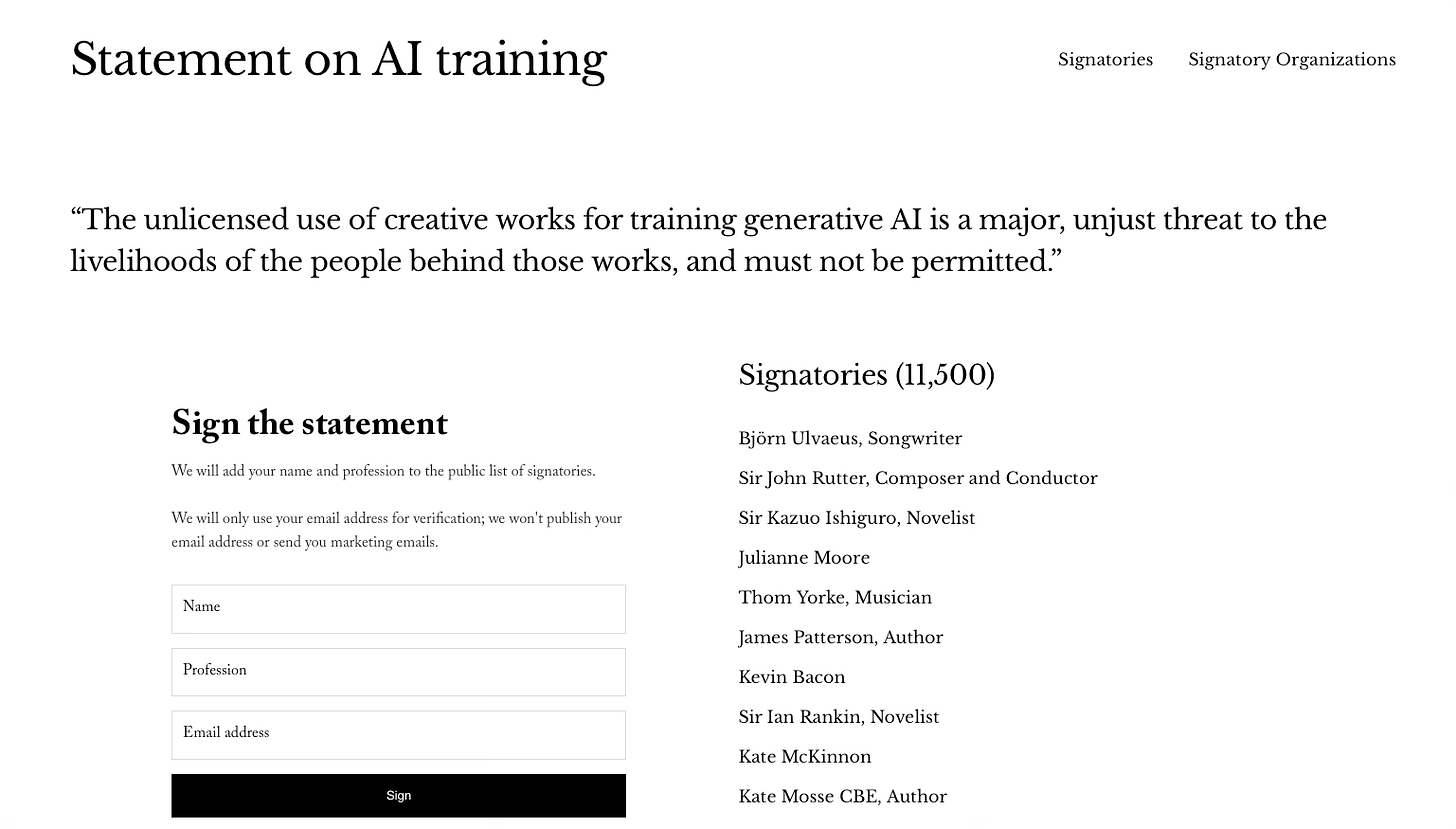
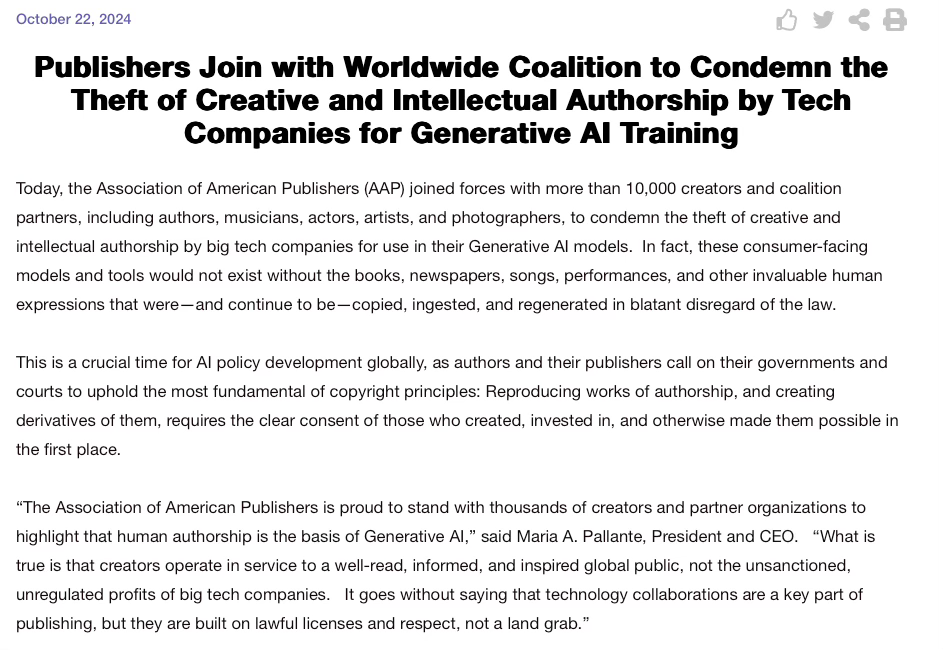

Thom Yorke and Julianne Moore join thousands of creatives in AI warning
Statement comes as tech firms try to use creative professionals’ work to train AI models
Quote: "Abba’s Björn Ulvaeus, the actor Julianne Moore, the Radiohead singer Thom Yorke are among 10,500 signatories of a statement from the creative industries warning artificial intelligence companies that unlicensed use of their work is a “major, unjust threat” to artists’ livelihoods.
The statement comes amid legal battles between creative professionals and tech firms over the use of their work to train AI models such as ChatGPT and claims that using their intellectual property without permission is a breach of copyright.
“The unlicensed use of creative works for training generative AI is a major, unjust threat to the livelihoods of the people behind those works, and must not be permitted,” reads the statement.
Thousands of creative professionals from the worlds of literature, music, film, theatre and television have given their backing to the statement, with authors including Kazuo Ishiguro, Ann Patchett, and Kate Mosse, musicians including the Cure’s Robert Smith as well as the composer Max Richter and actors including Kevin Bacon, Rosario Dawson and F Murray Abraham.
The organiser of the letter, the British composer and former AI executive Ed Newton-Rex, said people who make a living from creative work are “very worried” about the situation.
“There are three key resources that generative AI companies need to build AI models: people, compute, and data. They spend vast sums on the first two – sometimes a million dollars per engineer, and up to a billion dollars per model. But they expect to take the third – training data – for free,” he said.
Newton-Rex is a former head of audio at tech firm Stability AI but resigned last year over the firm’s belief that taking copyrighted content to train AI models without a licence constitutes “fair use”, a term under US copyright law meaning permission from the copyright owner is not needed.
Newton-Rex added: “When AI companies call this ‘training data’, they dehumanise it. What we’re talking about is people’s work – their writing, their art, their music.” (...) Newton-Rex said the number of signatories to the statement, and the breadth of creative talent they represent, made clear that an opt-out scheme would be considered “totally unfair” by creators. The statement is also signed by creative industry organisations and companies including the American Federation of Musicians, the US actors’ union SAG-AFTRA, the European Writers’ Council and Universal Music Group."
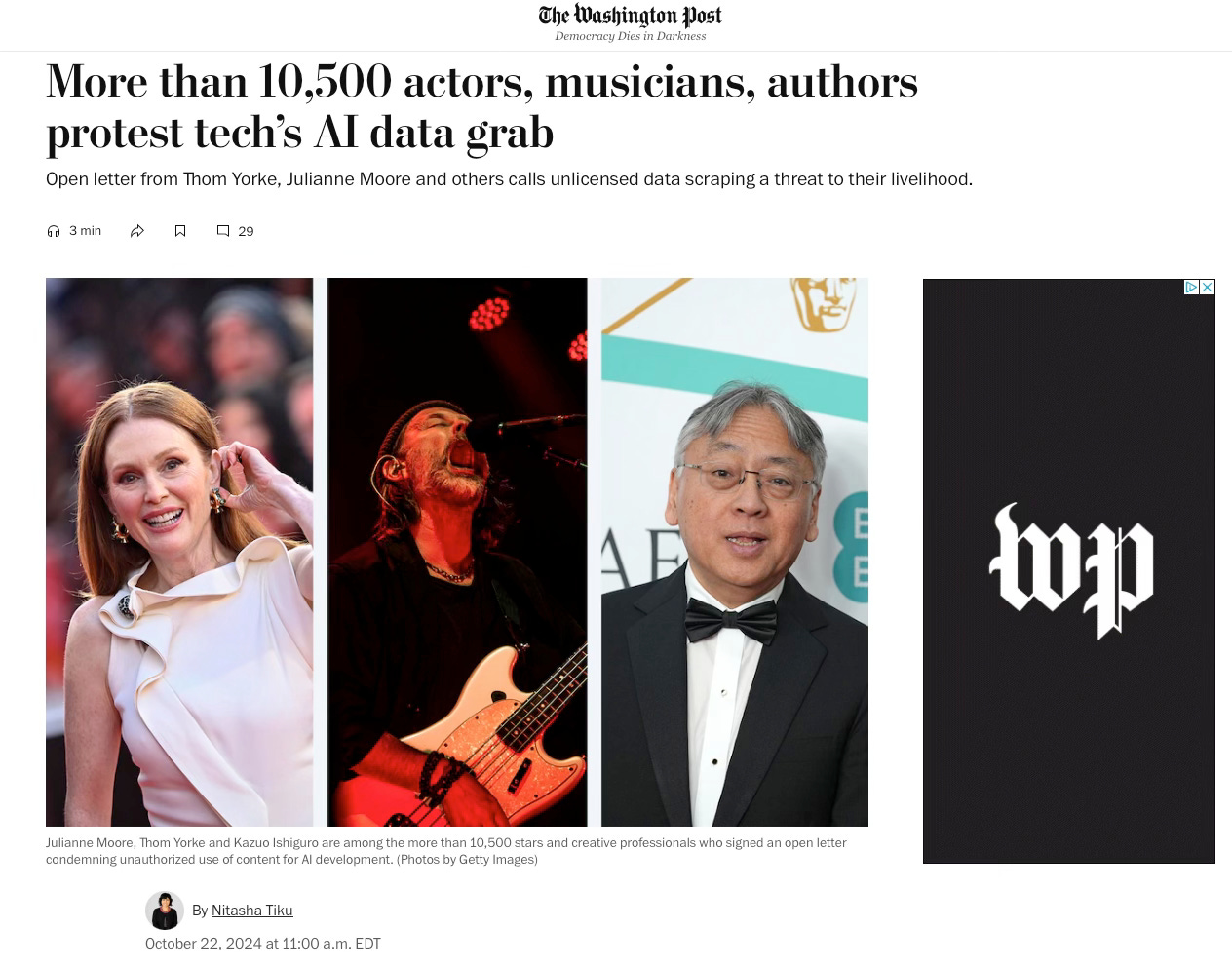
More than 10,500 actors, musicians, authors protest tech’s AI data grab
Open letter from Thom Yorke, Julianne Moore and others calls unlicensed data scraping a threat to their livelihood.
More than 10,500 creative professionals, including Thom Yorke from Radiohead, actress Julianne Moore, and Nobel Prize-winning novelist Kazuo Ishiguro, have signed an open letter condemning “unlicensed use of creative works” to develop artificial intelligence systems such as OpenAI’s ChatGPT.
Use of creative work without a license for AI development is “a major, unjust threat to the livelihoods of the people behind those works, and must not be permitted,” the brief, 29-word letter says.
OpenAI and other tech companies need text, images, video and other material to train the algorithms that power chatbots and other AI systems. That data has often been scraped from the internet without consent, compensation or credit.
Tech companies have argued this practice is protected as “fair use” under copyright law, but content owners and publishers have increasingly fought back. They have asserted in lawsuits and pleas to regulators that AI developers using their work have illegally infringed on their copyright protections. (…)
The letter released Tuesday was signed by actors including Kevin Bacon and Melissa Joan Hart; comedians Kate McKinnon and Rosie O’Donnell; authors including Ann Patchett and Emily St. John Mandel; songwriter Billy Bragg and ABBA’s Björn Ulvaeus; and a slew of Oscar-winning composers who scored movies like “Avatar” and “The Life of Pi.”
Industry figures including the head of trade organization Songwriters of North America and the CEO of Hachette Book Group also signed the letter.
The letter comes after industry-specific protests against unauthorized use of creative work for AI systems. Those have included musical artists such as Billie Eilish and Nicki Minaj, Hollywood documentarians, and a group of more than 15,000 authors including Margaret Atwood and Jonathan Franzen.
At the same time, U.S. courts are allowing claims in a number of lawsuits against AI companies over data use to proceed.
In July, a U.S. District Judge in California allowed a claim of copyright infringement to move forward in a lawsuit filed against OpenAI by writers including comedian Sarah Silverman. An allegation of unfair business practices in the suit was dismissed. In August a different U.S. District Judge in the state allowed key parts of a lawsuit against image generation start-ups Stability AI and Midjourney to advance. Experts warn it will be challenging for plaintiffs to win such cases, because they may have to prove that the outputs from AI systems are imitating specific works, not just using them as one input among many that influences the system’s behavior.
Some content publishers have taken a different tack, signing agreements with AI developers to provide access to their data in return for payment or other benefits.
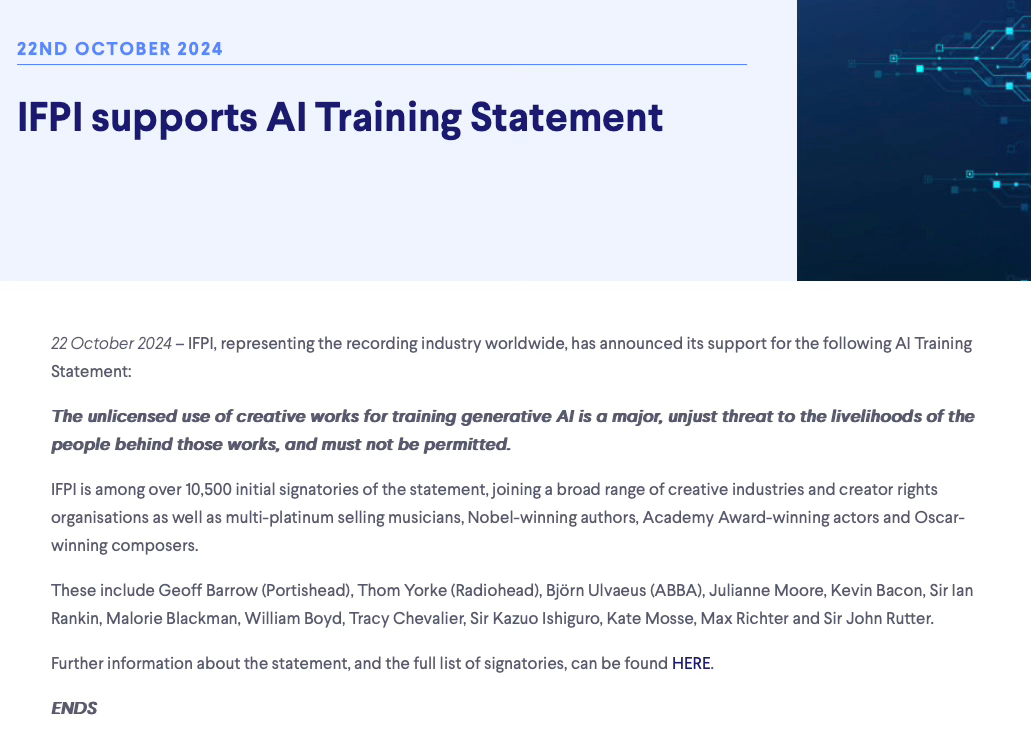
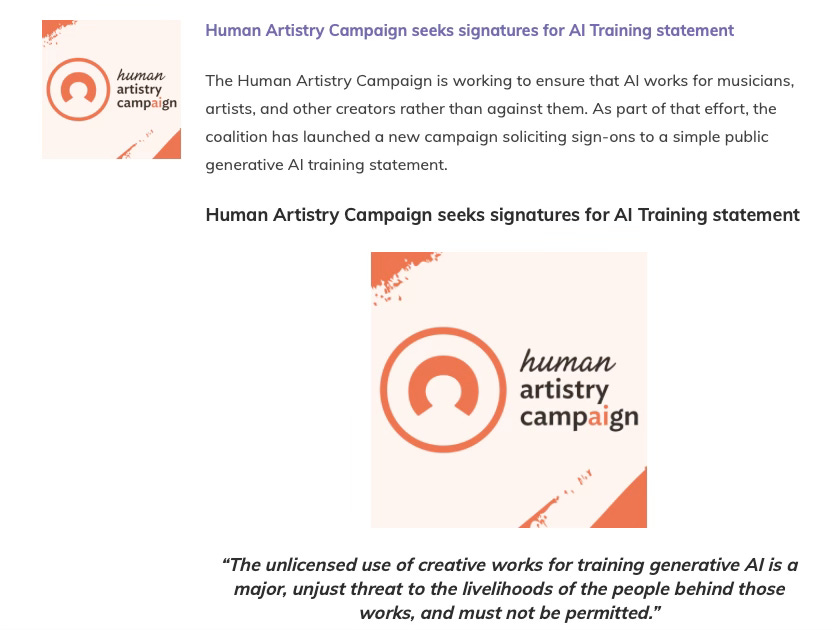
Members of the Human Artistry Campaign include The National Independent Talent Association (NITO), the RIAA, SAG-AFTRA, Artists Rights Society, the NMPA, the Society of Composers and Lyricists, Music Publishers Canada, PRS for Music and many more organizations representing creators.
The coalition is also working in support of the The NO FAKES Act (Nurture Originals, Foster Art, and Keep Entertainment Safe Act) which would establish federal rights to own your own voices and likeness and establish a system to fight back against nonconsensual AI-generated deepfakes and voice clones.